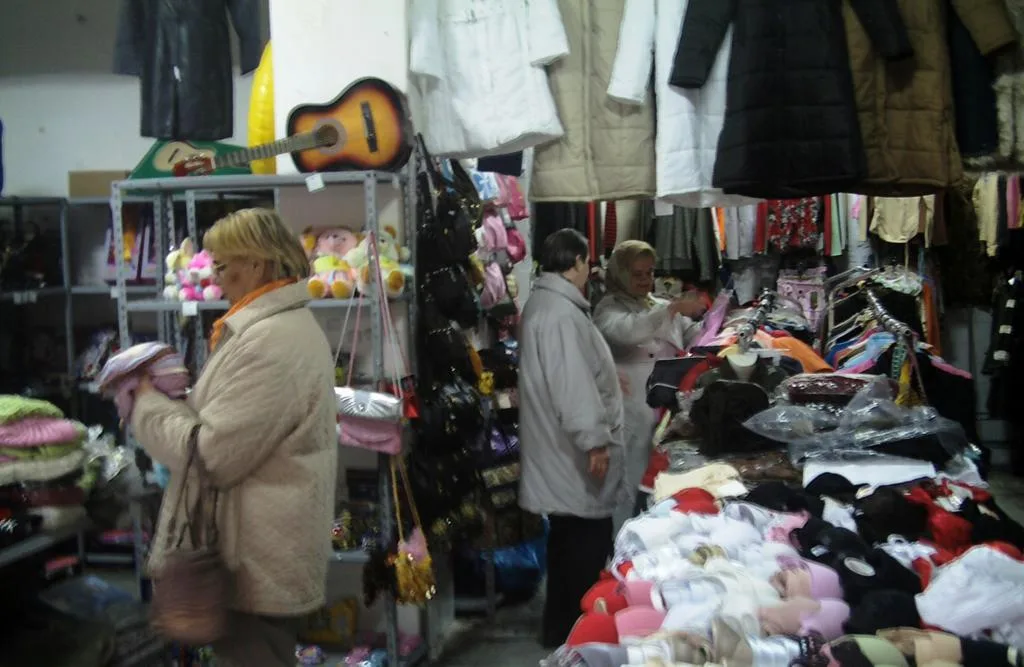Chinese retailers have cornered the market on cheap trinkets and glittery gifts in Bosnia and Herzegovina (BiH), but they are paying a heavy physical and psychological price in the form of criminal harassment and official scrutiny.
Since the end of war in 1995, hundreds of young Chinese immigrants have moved into BiH selling cheap Asian products, including shoes, household goods and kitsch.
The immigrants flowed in, at first mostly from Serbia, where the regime of Slobodan Milošević had welcomed newcomers from one of the few countries with which it had diplomatic ties. Starting in 2000, another wave of immigrants came in, some over the porous border with Serbia illegally and some from China legally taking advantage of BiH’s lax visa requirements.
Don't want to miss our stories?
Sign up for our newsletter.
Don't want to miss our stories?
Sign up for our newsletter.
Local traders at first disliked the Chinese shops, but they have since been won over by their undeniably low prices and have adopted the same sales strategies. ‘Three for a mark’ is now a catch phrase for trading on the streets of all BiH cities.
Chinese shops have multiplied, but the biggest concentration in the country is at the outskirts of Sarajevo in Rajlovac, Buća and Boljakov Potok. Records at the Tax Administration of Sarajevo Canton show that 151 companies there have been incorporated by nationals of the People’s Republic of China.
BiH custom and tax authorities, suspicious of possible smuggling and tax evasion, have cracked down on the shops. Records show that tax officials inspected 76 between January 2006 and January 2007, closing 34 at least temporarily. In comparison, tax officials visited just 36 companies and independent artisan shops in the far larger tourist area of Stari Grad municipality over the same period. Five were temporarily closed.
Tax officials have not been the Chinese community’s worst problem, however.
Chinese traders have fallen victim to local criminals demanding cash.
Yianxin Yeu, a Chinese trader who opened two shops in Sarajevo four years ago, endured bullying from extortionists who became more and more aggressive until they finally threw a Molotov cocktail into his Dobrinja warehouse.
Yeu told reporters from CIN in Sarajevo that on Sept. 21, Eldin Bitići, a 19-year-old known as Tica or The Bird, had appeared with five friends on the doorstep of his shop, Rapod, in Alipašino Polje. He said in faltering Bosnian that Tica had demanded 500 KM to leave the retailer in peace and warned that he would wreck the shop if he didn’t get it.
Yeu paid 100 KM in the hope that it would satisfy them. But several days later Tica visited again, demanding 200 KM more. The Chinese trader only had 50 KM, which didn’t satisfy the thug, who left threatening to destroy his shop.
Four days later, on Sept. 25, the warehouse was set on fire. Yeu and his wife, Yu Yin, were asleep in their room next door. Alerted by the smell of smoke, the pair managed to extinguish the flames largely because the Molotov cocktail was made using a plastic bottle.
That same night, the Sarajevo cantonal prosecutor issued a warrant for Tica’s arrest. A month later he was charged with extortion and endangering the public.

Yeu, his wife and their two Bosnian employees are still afraid. The retailer has received several threatening phone calls demanding that he withdraw the complaint against Tica or be bombed again. And in November, two men who employees recognized as Tica’s friends came into the Rapod store and also pressed for the complaint to be dropped.
‘He says if Tica go, he come to shop. All goods out’ a clearly nervous and concerned Yeu said. He declined to be photographed even after this ordeal and the likelihood that those threatening him already know what he looks like.
Police now visit the shop occasionally but offer little by way of effective protection. Instead of round-the-clock guards, police suggested that Yeu close promptly at nightfall.
While the Radon store owner attempts to come to terms with his experience, anxiety remains high among the dozen shopkeepers at the Chinese market along Boljakov Potok. Most deny that extortionists have visited them, but several have put in Biga security alarm systems as a preventive measure against theft.

One group of six men playing Yun Qi, a dominos-like war game, in front of a small shop at the Chinese market did not want to talk about the topic at all. One player said curtly that there were no criminals. Two players exchanged knowing glances and kept their heads bent over the board.
Some Chinese shopkeepers in Rajlovac said extortion attempts do occur, but many are too afraid of retribution to talk openly about receiving threats.
‘They are afraid to talk. He is afraid they back again’ said Ye Yianmin, who owns the Shangai shop in Rajlovac and has had personal experience of the violence.
In 2005, thugs stormed into Yianmin’s store demanding money. He refused to pay up and the criminals shot and wounded his brother in the leg. They threatened to do worse.
Nobody was ever charged for the attack and his brother, Ye Jian Xiong, left BiH as a result.

More recently, Yianmin has found himself the target of threats. In April, 23-year-old Arnes Kruša, known as Ale, came into the shop and delivered a letter that his assistant Dženita Turkušić had to translate. It demanded that Yianmin turn over €1,000 and threatened severe violence against him and his wife, Wei Xiaoli, if he tried calling the police.
Ignoring the threat, Yianmin went to the police and Kruša was soon arrested. In late April he pleaded guilty to attempted extortion.
But even in a case where the villain is brought to justice, Chinese shopkeepers can’t breathe easy. Kruša was sentenced to just six months probation — with no jail time.
That was the punishment the prosecutor in the case requested, said Amela Huskić, the head of criminal department of the Sarajevo municipal court.
Since the verdict Kruša has not returned to the Chinese shop, workers said.
But in early November, on a day when the Shanghai store was packed with customers, two gloomy-looking men carrying weapons came in and looked into the cash register. Yianmin believes the men were the same thugs who came into his shop in 2005 during the first disastrous raid.

























